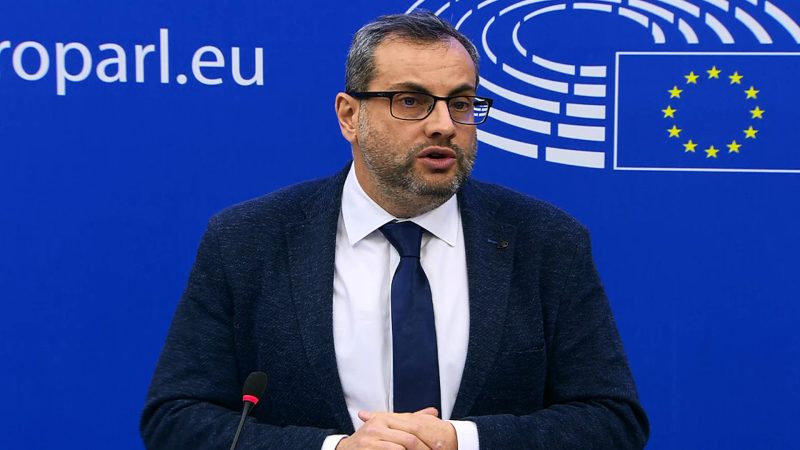The European Parliament is advocating for new regulations to address the fair compensation of artists by streaming services, including protection against artificial intelligence (AI) exploitation. The objective of these proposed changes is to ensure equitable compensation for smaller artists.
Currently, the distribution of royalties often results in artists accepting lower pay in exchange for visibility on platforms like Spotify and Apple Music. In addition, concerns have been raised about how AI is used to mimic voices without contracting artists and then being used on these platforms, necessitating AI regulations.
On January 17, Members of the European Parliament voted overwhelmingly in favor of establishing a new EU legal framework to ensure fair compensation for artists.
The European Parliament has called for EU rules to ensure the music streaming sector is fair and sustainable, and to promote cultural diversity.
Press release: https://t.co/iDpxHQr2CN pic.twitter.com/1fcRqHzDKh
— European Parliament (@Europarl_EN) January 17, 2024
Members of the European Parliament (MEPs) are actively seeking new legal frameworks to better support artists in this regard. The proposal also emphasizes the need for increased transparency regarding algorithms determining artist suggestions and track promotions.
MEPs argue that the current royalty distribution model is inequitable, with existing algorithms favoring major labels and artists, making it challenging for lesser-known and diverse genres to gain exposure. As part of this call for change, MEPs are advocating for increased regulation regarding the use of artificial intelligence (AI).

The implementation of a legal framework by EU regulators may take some time. In a similar vein, UK regulators have also addressed pay fairness issues on streaming apps, investigating the impact of algorithms on listening habits. It is well-known that streaming platforms contribute to over half of the global music industry’s revenue, representing approximately 67 percent.
The EU also acknowledged the encroaching abuse from AI via using music artists’ voices without their knowledge nor approval – or without proper compensation. Any compensation, really. The same thing has been happening in other artistic sectors as well.
As such, streaming companies are being urged to disclose whether AI has been used to create tracks hosted on their platforms, especially “deepfake” music mimicking real-life artists without permission. An example of this is the Drake x The Weekend track on Spotify that mimicked these performers’ voices that trended back in April 2023.
I'll split 50% royalties on any successful AI generated song that uses my voice. Same deal as I would with any artist i collab with. Feel free to use my voice without penalty. I have no label and no legal bindings. pic.twitter.com/KIY60B5uqt
— 𝖦𝗋𝗂𝗆𝖾𝗌 ⏳ (@Grimezsz) April 24, 2023
However, there are independent and mainstream music artists who openly use AI, and some even encourage their fans to do the same. Canadian musician Grimes (Claire Elise Boucher) posted on X (formerly Twitter) that she would support people cloning her voice provided she received royalites for such use.
Another example is Nicki Minaj who used AI-generated images made by her team and by her so called “Barbz” fans to promote her recent single ‘Press Play’ from the album Pink Friday 2, which led to some pretty heated back-and-forths.
Ibán García del Blanco of Spain, rapporteur of the European Parliament, stated, “Cultural diversity and ensuring that authors are credited and fairly paid has always been our priority; this is why we ask for rules that ensure algorithms and recommendation tools used by music streaming services are transparent as well as in their use of AI tools, placing European authors at the center.”

To this end, the EU urged a substantial overhaul of the music streaming industry to rectify the revenue allocation imbalance among performers. Highlighting concerns about “pre-digital royalty rates,” the EU acknowledged that some schemes force musicians to accept lower or even zero revenue in exchange for increased visibility on streaming platforms.
It should be noted that the MEPs’ resolution itself isn’t actually legislative. Still, the vote serves as a call to the European Commission to address these concerns and initiate legislation as soon as possible. Streaming services have faced increasing pressure to improve terms for all artists on their platforms.
Spotify, for instance, faced criticism in November for changes to its royalty payments, requiring tracks to achieve a minimum of 1,000 plays annually to receive royalties. On the other hand, Deezer’s new deal with Universal Music in September 2023 introduced a model prioritizing professional musicians, resulting in a payout increase for these artists.
The European Parliament’s advocacy for fair compensation and transparency signals a broader effort to address longstanding issues within the music streaming industry. Could this be the beginning of the end for fake AI music being on streaming platforms, given the general public’s growing negative perception toward the use of artificial intelligence that exploits artists? Let’s hope!

